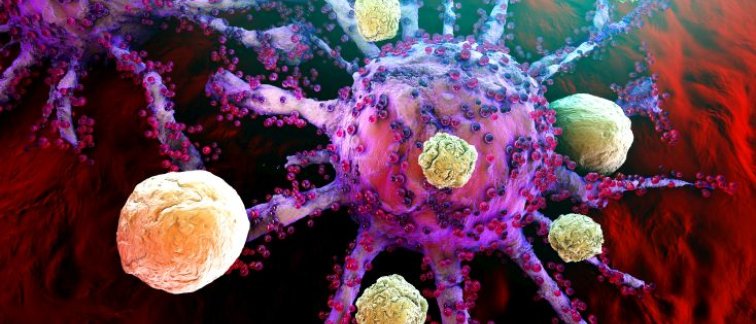New opportunities in cancer immunotherapy
Immunotherapy in oncology has been an active and exciting area of research over the last twenty years, producing several significant breakthroughs in cancer therapy. Currently, the most advanced immunotherapies stimulate the T cells and B cells of the adaptive immune system to actively fight cancer. However, little research has been done on exploiting the innate immune system.
The innate immune system is a more general first-line defense system that has evolved to protect the host from a wide variety of environmental toxins and infectious agents including bacteria, fungi, viruses and parasites. The adaptive immune system is a younger evolutionary defense strategy that includes the production of antibodies for acquired immunity and immune memory programming. The innate immune system in vertebrates was considered to lack specific memory, mainly due to a lack of evidence of available mechanisms. However, recent research has demonstrated that the innate immune system can be “trained” by exposure to certain compounds, and repeated exposure induces stronger immune responses. The “memory” was found to be in hematopoietic stem cells, located in the bone marrow, that serve as precursors of myeloid cells such as neutrophils, monocytes, and macrophages.
“The therapeutic induction of trained immunity can be enormously beneficial for cancer control,” says Dr. Bram Priem, of Amsterdam UMC, and the study's first author. "The production of innate immune cells with a trained immune phenotype is regulated by progenitor cells in the bone marrow. Progenitor cells are the ’parents’ of cells that can develop into adequately programmed immune cells. These immune cells can fight cancer cells in our research in mice. The first trials in patients will be able to begin in one to four years.”
Building a training tool for the innate immune system
Although there is a range of “training agents” that induce immune response in cultured myeloid cells, the challenge was developing a system that could deliver the agent to the bone marrow in animals. Nanobiologics are small materials engineered from natural carrier molecules, such as phospholipids and cholesterol. Building on their previous work that identified a variety of nanobiologics that have a high affinity for bone marrow, the team created and screened a nanobiologic library to select the agent that had the best capacity to promote trained immunity in cultured human and mouse cells. After carefully assessing the toxicity profile of the selected nanobiologic candidate, it was injected into mice where it accumulated in the bone marrow and significantly suppressed tumor growth, without apparent toxicity. The trained myeloid cells also primed the immune system’s susceptibility to checkpoint blockade therapy, enhancing the effectiveness of these drugs.
Clinical potential of innate immune system activation
The therapy mechanism was hypothesized to be a change in the tumor microenvironment from a “pro-tumor” to an “anti-tumor” state, through a rebalancing of myeloid immune cells. Importantly, the effectiveness of the nanobiologic training agent was found to be very similar in non-human primates, underlining the clinical potential of the nanobiologic immunotherapy.
“The work involves the development and preclinical evaluation of a novel immunotherapy based on highly biocompatible nanomaterials called nanobiologics. Our study is a significant advancement for both trained immunity and cancer treatment, with real translational potential,” says Willem Mulder, of TU Eindhoven and the Icahn School of Medicine at Mount Sinai, leader of the study.
The biotech start-up Trained Therapeutix Discovery (TTxD) is working on the further development of nanobiologic immunotherapy to treat recalcitrant and debilitating diseases, including cancer and serious infections. TTxD plans to transfer the treatment to clinical trials within one to four years.
For more information on this groundbreaking research:
listen to the podcast about the research on BNR, with an explanation by Willem Mulder.
or read the full article: B. Priem et al., "Trained immunity-promoting nanobiologic therapy suppresses tumor growth and potentiates checkpoint inhibition", CELL, (2020).

